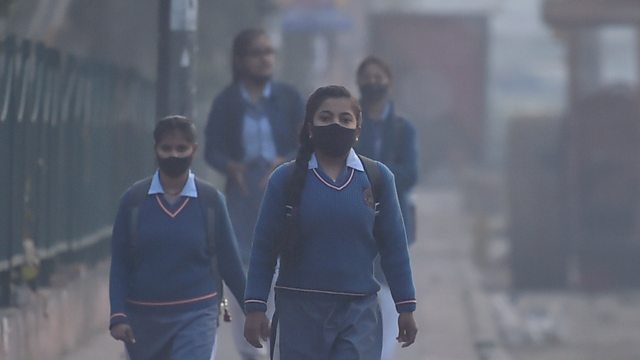How air pollution is knocking years off our lives
Pollution reduces life expectancy of people around world by an average of two years - an impact more than war, travel accidents, malaria and HIV combined says study.
Air pollution is known to be a threat to health and can be life threatening. An estimated seven million people die prematurely each year from diseases linked to air pollution, the WHO says. Low and middle-income countries suffer the most, because of their reliance on fossil fuels for economic development. Now, alarming figures from the latest annual study from the University of Chicago's Energy Policy Institute, The New Air Quality Life Index finds that聽someone living in the world's most polluted city - Delhi - can have their life expectancy shortened by up to 10 years.
Christa Hasenkopf, a Clean Air & Open Data advocate, says that pollution reduces life expectancy of people around the world by an average of two years, with the impact of pollution more, she says, than war, travel accidents, malaria and HIV combined.
She notes the problem is worst in South Asia, which was the most polluted region in 2020, and that India, Pakistan, Bangladesh and Nepal are among the top five most polluted countries, whose residents would live for five years longer if the air pollution levels met WHO guidelines - population growth, economic development, industrialisation and "sky rocketing energy consumption" in the form of fossil fuel use are the main reasons.
However, she goes on to say that there have been improvements, and that China has become a "beacon of progress" since declaring war on air pollution in 2014, and has since reduced pollution by 40% in the last two years, thereby increasing life expectancy by an average of two years.
Photo: Girls walk to school on a smoggy day in Delhi, India Credit: Getty Images
Duration:
This clip is from
More clips from Newshour
-
![]()
Childlike illusion can unlock past memories, study suggests
Duration: 04:53
-
![]()
Why the price of gold has soared
Duration: 04:37
-
![]()
The surprising location of Duke Ellington's final recording
Duration: 03:19
-
![]()
Bishara Bahbah: Trump's backchannel with Hamas
Duration: 07:43






